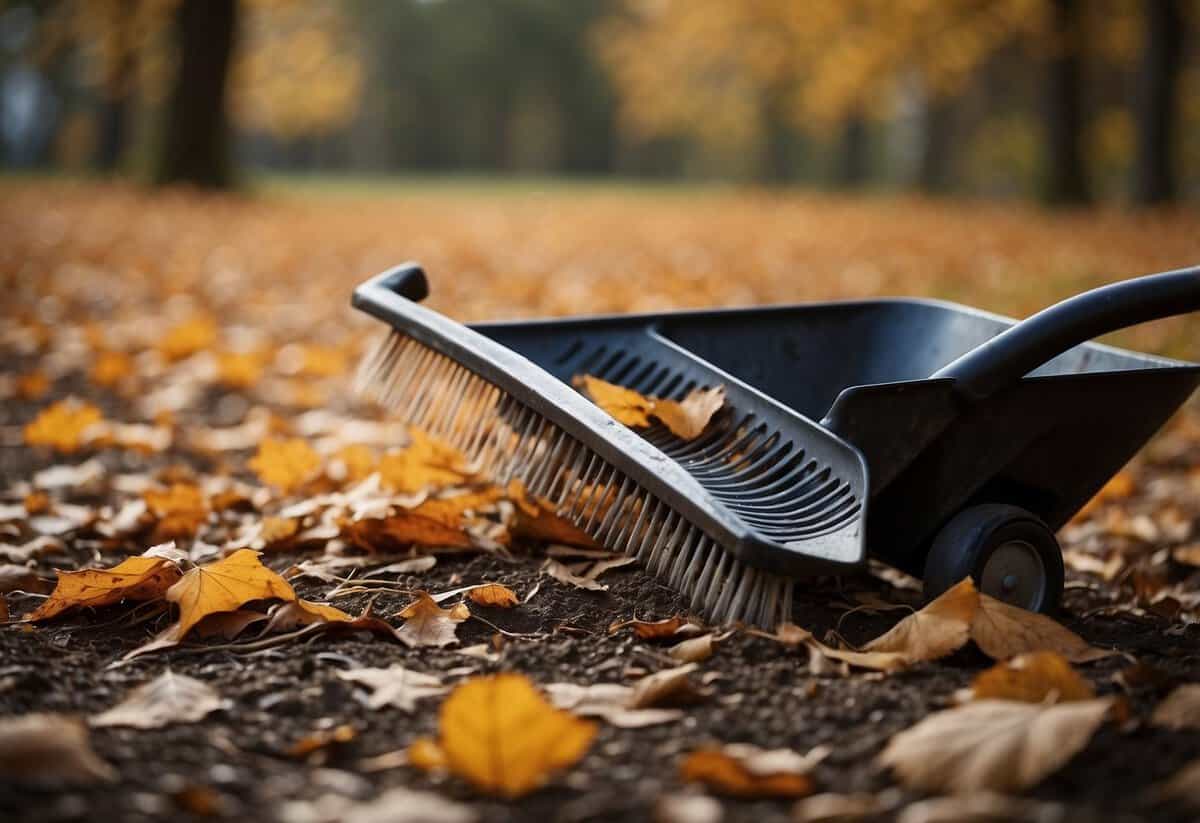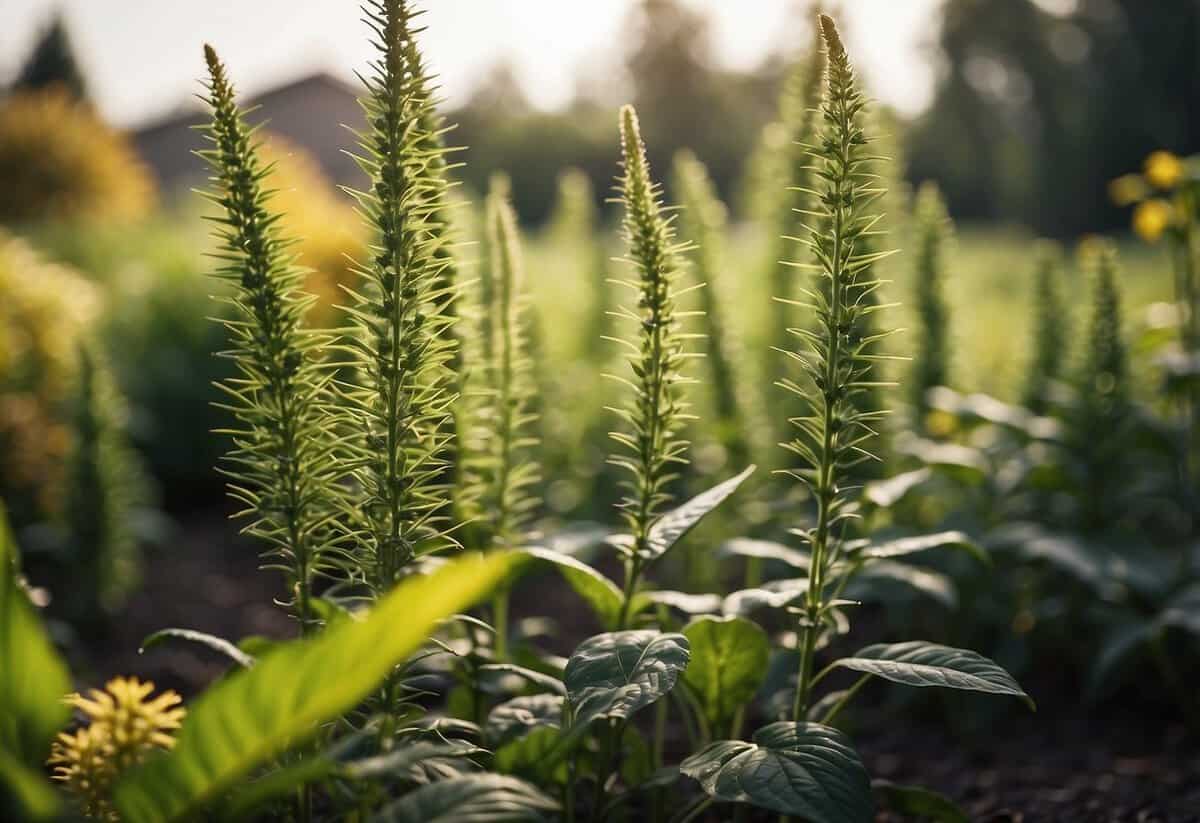Garden Cleaning Tips: Easy Ways to Keep Your Garden Neat
Keeping your garden clean and tidy is a rewarding task that pays off with a beautiful, healthy outdoor space. Whether you’re a seasoned gardener or just starting, there are numerous techniques to help maintain your garden‘s appearance and wellbeing. Why is garden cleaning important? It helps prevent pests and diseases, boosts plant health, and enhances the overall look of your garden.

From regular weeding to proper tool maintenance, garden cleaning involves a variety of tasks that ensure your garden thrives. By incorporating some simple routines, you can enjoy a more vibrant and productive garden environment.
1) Prune Overgrown Plants Regularly

Pruning helps your plants stay healthy and grow better. When plants get too big, they can block sunlight and air from reaching other plants. This can make your garden look messy.
Use clean, sharp tools to cut dead or overgrown branches. This helps prevent diseases. Prune your plants in the right season for each type. Regular pruning makes your garden look neat and keeps your plants happy and healthy by improving air flow and reducing the spread of disease.
2) Use Mulching to Suppress Weeds

Mulching is a great way to keep weeds under control in your garden.
You can use materials like shredded leaves, straw, or wood chips to cover the soil. This layer blocks sunlight from reaching weed seeds, stopping them from growing.
Mulch also helps retain soil moisture and keeps the ground cooler, benefiting your plants. For more details, check out this guide on mulch benefits.
3) Install drip irrigation systems

Drip irrigation is a great way to water your garden efficiently.
Start by planning where you want your drip lines. Make sure to cover the root zones of your plants. This ensures each plant gets water directly at its base.
Connect the header to your water source using a garden hose. This will help create a secure connection.
Flush the system before using it. Open the end caps and let water run through to clear any debris.
Remember to check your system regularly for clogs or leaks. This will keep everything running smoothly.
For more details, visit this guide.
4) Compost kitchen scraps

Composting kitchen scraps is a great way to recycle waste and boost your garden’s health. You can compost items like fruit peels, veggie scraps, and eggshells.
Simply save your scraps in a small bin. When it’s full, transfer them to a compost pile.
Adding materials like coffee grounds and grass clippings will help speed up the composting process. Using kitchen scraps for compost can enrich soil and promote strong plant growth.
5) Apply Organic Pest Control

Organic pest control helps keep your garden healthy without using harmful chemicals. It works by using natural methods to manage pests.
Garlic and pepper spray can protect your plants from pests like aphids and caterpillars. To make it, blend garlic and hot pepper with water, strain, and add a few drops of dish soap.
You can also use garden forks to aerate your soil and cover it with mulch to prevent weeds. This keeps your garden environment balanced and controls pests naturally. You can read more about these methods from Gardening Channel.
6) Clean garden tools frequently

Keeping your garden tools clean is important. Dirt, sap, and rust can damage them over time. After each use, wipe your tools with a damp cloth.
For tougher grime, scrub with a wire brush. Disinfecting tools is also key. A solution of bleach and water can kill bacteria and fungi. Soak for 10 minutes, rinse, and dry well.
Sharpening your tools regularly helps maintain their performance. Use a flat file or whetstone with clean, dry tools. Stored properly, your tools will last longer and work better.
7) Aerate the soil annually

Aerating your soil once a year helps the roots of your plants grow stronger. Use a garden fork or an aerator tool to make holes about 2-3 inches deep.
After aerating, spread a thin layer of compost over the soil. This adds nutrients and improves soil health. Remember to cover the entire garden evenly to get the best results.
Aeration also reduces soil compaction, making it easier for water and air to reach plant roots. This can lead to healthier plants and better growth. Make it a regular part of your garden maintenance routine.
8) Plant cover crops for soil health

Planting cover crops is a great way to keep your soil healthy. These crops add nutrients and organic matter to the soil, improving its structure and fertility. They also help prevent erosion.
Cover crops like legumes can fix nitrogen in the soil. This makes the soil richer for your future plants. Additionally, they can help control weeds by blocking sunlight.
For best results, sow the cover crop seeds and then lightly rake them into the soil. Water the area well to help the seeds germinate.
9) Stake Tall Plants for Support

Tall plants can use some extra help to stay upright. To do this, insert a stake into the ground next to the plant, about an inch or two from the main stem. Use natural twine or string to tie the stem to the stake. Leave a little slack so the plant can sway gently without breaking.
For larger gardens, consider using multiple stakes to support heavier plants. This method is efficient and saves on materials. Check the ties occasionally to ensure they are not cutting into the stem as the plant grows. This helps keep your garden looking natural and healthy.
10) Collect rainwater for irrigation

Collecting rainwater is a smart way to save water and give your garden the natural hydration it needs.
You can use barrels or other containers to catch rain from your roof. Place them under your gutters to maximize the amount of water collected.
Make sure to cover the containers to keep out debris and insects. Using this water for your plants can cut down on your water bill and help during dry spells.
For more ideas on rainwater collection, check out this article on Epic Gardening.
Understanding The Importance Of Garden Cleaning

Keeping your garden clean not only enhances its beauty but also promotes the health of your plants. Below are key reasons why maintaining a tidy garden is crucial, along with some common mistakes you should avoid.
Benefits Of A Clean Garden
A clean garden provides a healthier environment for your plants. By removing dead foliage and debris, you can prevent plant diseases and reduce the risk of pests. Dead plant matter can harbor bacteria and fungi, posing a threat to your healthy plants. Regular cleaning keeps these issues at bay.
Tidying up your garden also makes it more pleasant to spend time in. A well-maintained space can enhance the curb appeal of your home, creating a welcoming atmosphere for visitors. Tasks such as pruning shrubs, pulling weeds, and edging can significantly improve the appearance and health of your garden.
Common Garden Cleaning Mistakes
One mistake is starting the clean-up process too early. It’s best to wait until temperatures consistently reach the 50sF (10°C) to avoid harming your plants. Another common error is neglecting proper tool maintenance. Cleaning and disinfecting tools is essential to prevent the spread of disease.
Additionally, failing to remove winter mulch in time can smother plants and hinder new growth. Overlooking these steps might lead to poor plant health and less vibrant garden spaces. Always ensure that leaves are raked and dead plants are pulled to keep your garden thriving.
Preparing For Garden Cleaning

Before starting your garden cleaning, gather the right tools and take necessary safety precautions. Having the proper equipment and being prepared can make the job easier and keep you safe.
Essential Tools And Equipment
To begin, you need basic tools like a rake, hedge shears, and pruning tools. Rake fallen leaves and debris to clear the garden area. Hedge shears are useful for trimming shrubs and cutting dead perennials. For stubborn weeds and grass, use tools such as a Cobrahead weeder or hook saw.
Consider tool maintenance too. Clean your tools after use by washing them with water to remove soil. Wipe them with a bleach solution (2:1 ratio of water to bleach). This disinfects and prevents rust. Keeping tools in good condition ensures they last long and work effectively.
Safety Precautions
Wearing proper protective gear is essential when you clean your garden. Gloves protect your hands from thorny plants and rough tasks. Sturdy shoes keep your feet safe from sharp objects. Dress in long sleeves and pants to avoid scrapes and insect bites.
Be mindful of your posture when lifting heavy objects to prevent back injuries. Lift with your legs, not your back. Keep a first aid kit nearby for minor cuts or scrapes. Additionally, stay hydrated, especially if working under the sun. Taking these safety steps helps you work more comfortably and reduces the risk of injury.
Advanced Cleaning Techniques

Advanced garden cleaning involves targeted approaches like addressing persistent weeds and dealing with pests and diseases effectively.
Dealing With Persistent Weeds
Persistent weeds can be tough to manage. Begin by deep weeding, ensuring you remove the entire root to prevent regrowth. Early morning is the best time for this task as the soil is usually damp, making it easier to pull the weeds out.
Mulching is another effective technique. Apply a thick layer of organic mulch around your plants. Mulch blocks sunlight, hindering weed growth. You can use straw, wood chips, or grass clippings for this purpose.
Spot-treat with vinegar. Mix one part vinegar with one part water in a spray bottle. Directly spray the solution on the weeds. Be careful to avoid your plants as vinegar can harm them too.
Addressing Pests And Diseases
Pests and diseases need prompt attention to keep your garden healthy. For pests, consider using natural predators like ladybugs and lacewings, which feed on harmful insects.
Create a homemade insecticidal soap by mixing one tablespoon of mild liquid soap with one quart of water. Spray this solution on affected plants to control pests like aphids and mites.
For diseases, practice good garden hygiene. Remove and dispose of any diseased plant material properly. Never compost infected plants as it can spread disease.
Using organic fungicides, such as those containing neem oil or baking soda, can help control fungal diseases. Spray the fungicide on both sides of the leaves for the best results.
Regularly inspect your plants so you can catch problems early and act quickly. Keep a close eye on any unusual spotting, yellowing, or curling of leaves.







